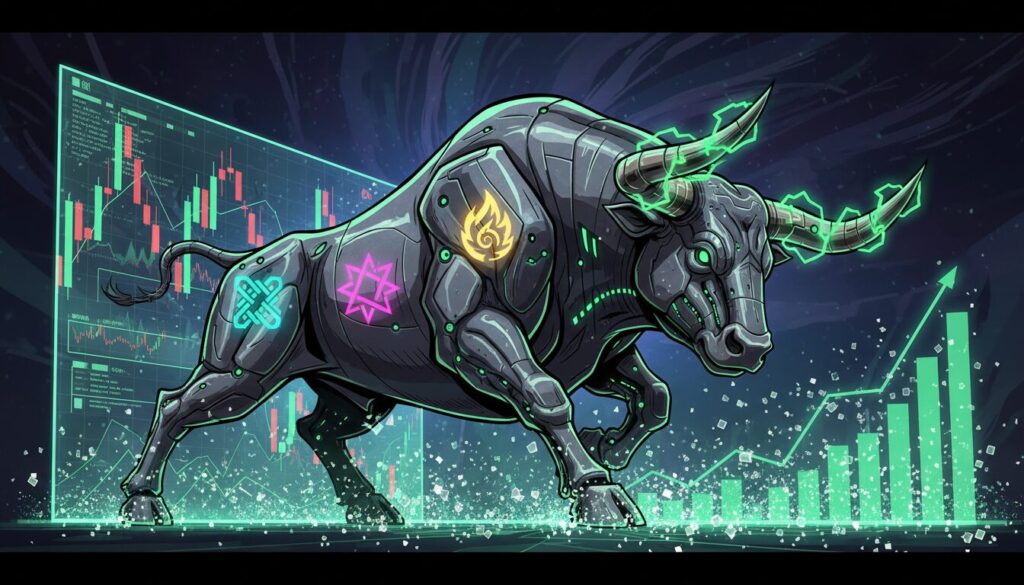Under the Radar: Key Projects Expanding the Solana Ecosystem

Hello! The text you’ve provided appears to be a headline and a brief introduction rather than a full article.
My function is to rewrite and enhance existing, complete articles. To proceed, please provide the full text of the article you would like me to process.
While the cryptocurrency market often focuses on short-term trends, several projects on the Solana network are quietly building substantial utility and long-term value. By moving beyond hype and focusing on innovation, these platforms are laying the groundwork for the ecosystem’s next phase of growth. Two notable examples are Jupiter, a comprehensive DeFi hub, and Pudgy Penguins, an NFT brand successfully bridging the gap to the mainstream.
Jupiter (JUP)
Jupiter has established itself as the leading Decentralized Exchange (DEX) aggregator on Solana, commanding a significant portion of the network’s aggregator volume. Its core function is to route trades across various Solana DEXs to secure the best possible prices for users; for example, swaps made within the popular Phantom wallet are processed through Jupiter. However, the platform has evolved far beyond simple swaps.
It has expanded into a full-featured Decentralized Finance (DeFi) platform offering limit orders, dollar-cost averaging (DCA) tools, perpetual futures, prediction markets, and a launchpad for new tokens. This strategic expansion into lending and money markets increases the protocol’s depth and opens new avenues for monetization. The recent beta launch of Jupiter Lend underscored this progress, attracting over $500 million in Total Value Locked (TVL) within its first 24 hours across more than 40 vaults.
The project continues to roll out significant technical upgrades. In October 2025, Jupiter launched its “Ultra v3” trading engine for faster execution and improved MEV protection. The team also enhanced its governance structure and reduced staking lock-up periods from 30 to just seven days. In another major development, Jupiter announced a partnership with Ethena Labs to introduce the $jupUSD stablecoin, a move designed to deepen liquidity and composability within its ecosystem. Despite these advancements, the JUP token’s market performance has been modest, trading around $0.35 with a market cap of $1.1 billion and only 31% of its total supply in circulation.
Pudgy Penguins (PENGU)
Pudgy Penguins has transformed from a niche Non-Fungible Token (NFT) collection into a powerful brand with impressive consumer crossover. The project has successfully expanded its intellectual property into physical merchandise available at major retailers like Walmart and Amazon, launched the “Pudgy Party” mobile game, and built significant global brand awareness.
The team is also embedding the Pudgy Penguins brand deep within Solana’s infrastructure, creating real utility for its token holders. A key initiative is the launch of $penguSOL, a branded liquid staking token. This allows users to stake SOL through the Pengu validator, earn yield, and support the project without locking up their assets. By establishing its own validator in partnership with SOL Strategies, the project has demonstrated a strong commitment to contributing to the network’s security and performance, proving it’s more than just a collectible.
The Solana network continues to be a hub for innovation, hosting a diverse range of projects from cultural brands to sophisticated financial tools. Among the standouts are Pudgy Penguins, Kamino Finance, and the Phantom wallet, each contributing to the ecosystem’s growth in its own unique way.
Pudgy Penguins and the Power of Branding
Pudgy Penguins has successfully leveraged its brand, building a massive community with over five million followers across its social media channels that have generated more than 254 billion views. This significant online presence is a core component of its strategy. The project’s token, $PENGU, currently trades around $0.02, which is approximately 70% below its all-time high of nearly $0.07. With a market capitalization of $1.2 billion and a high circulating supply, it represents a notable project within the ecosystem.
Kamino Finance: Simplifying DeFi
Kamino Finance ($KMNO) is a Decentralized Finance (DeFi) protocol designed to automate and simplify complex strategies like liquidity provision, lending, and borrowing. A key feature is its one-click “set-and-forget” vaults, which automatically manage and rebalance concentrated liquidity positions on Solana decentralized exchanges. This allows users to earn yield on their assets without needing to manually oversee intricate positions.
The protocol offers an all-in-one platform, eliminating the need for users to combine separate services to access yield, leverage, and liquidity. Kamino also provides advanced tools such as looping strategies, where users can amplify returns by repeatedly borrowing against deposited collateral, alongside options for leverage trading, staking, and governance. Ranking second in Total Value Locked (TVL) on Solana, Kamino has demonstrated significant user trust and product-market fit. The $KMNO token has a market cap of only $181 million and trades at roughly $0.06, well below its all-time high of nearly $0.25.
Phantom Wallet’s Evolution into a Financial Hub
Phantom stands as the most popular non-custodial wallet in the Solana ecosystem, but its reach extends much further. It now supports a variety of other networks, including Bitcoin, Ethereum, Polygon, Base, and Sui. Recently, Phantom expanded its services by launching its own dollar-pegged stablecoin, $CASH, and a payment super-app on Solana, transforming the wallet into a user-friendly payments platform that bridges crypto with everyday transactions.
This strategic move positions Phantom as a key player in Solana’s financial infrastructure, offering users real-world spending options. By integrating features like a stablecoin, payments, and staking, Phantom is evolving from a simple wallet into a comprehensive consumer finance hub, solidifying its role within the broader digital economy.
Disclaimer: The information provided in this article is for informational purposes only and does not constitute financial advice, investment advice, or any other sort of advice. You should not treat any of the website’s content as such. Always conduct your own research and consult with a professional financial advisor before making any investment decisions.








